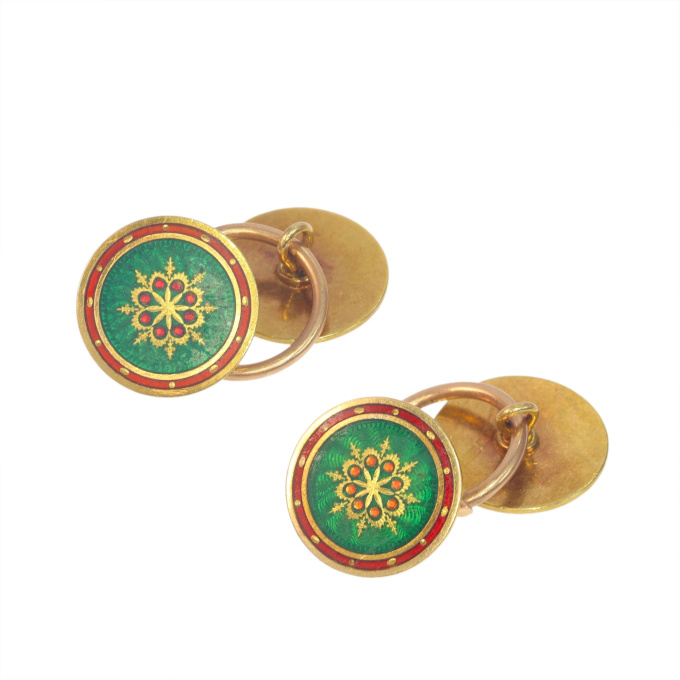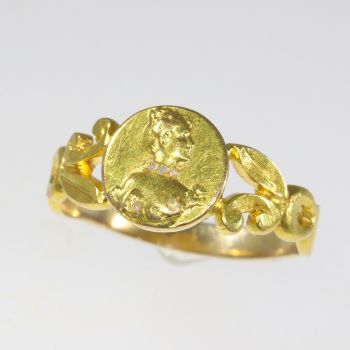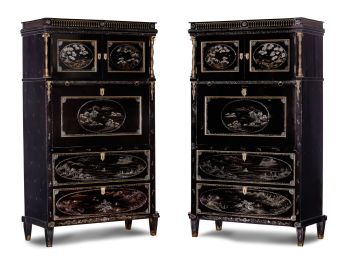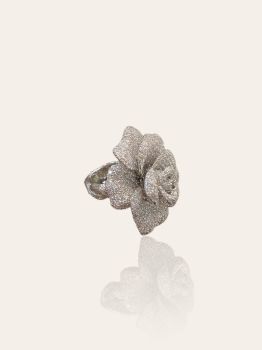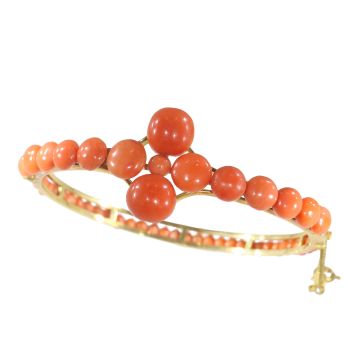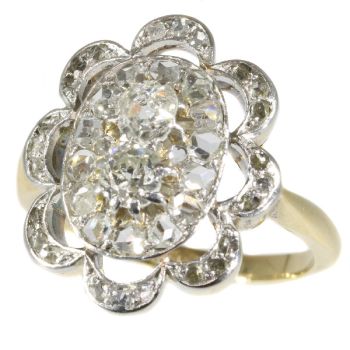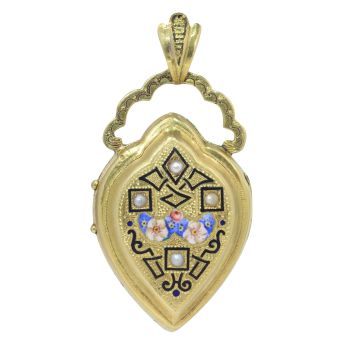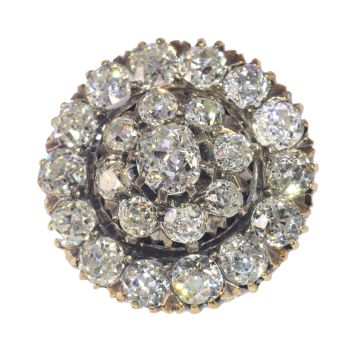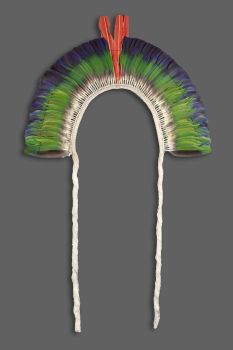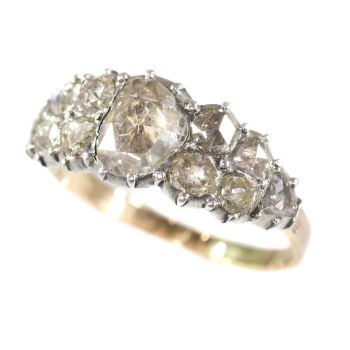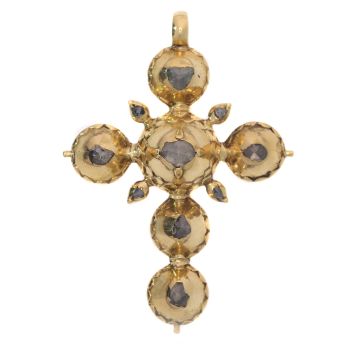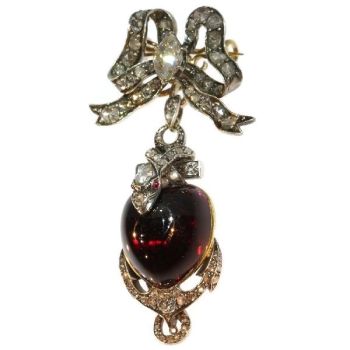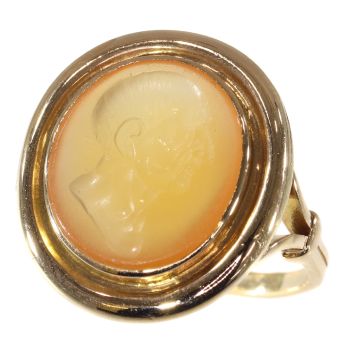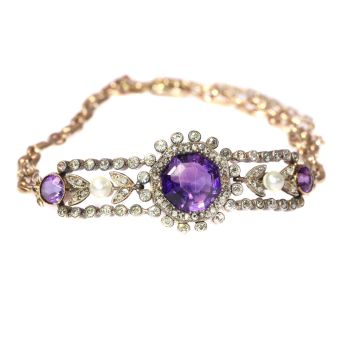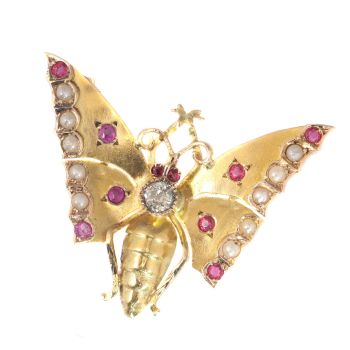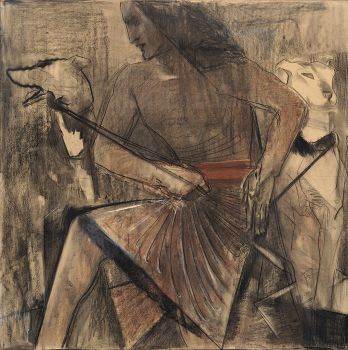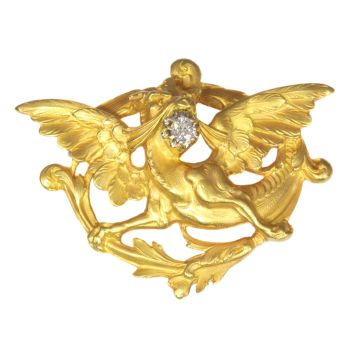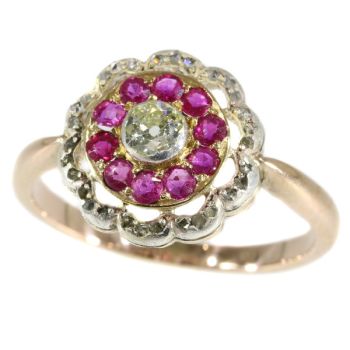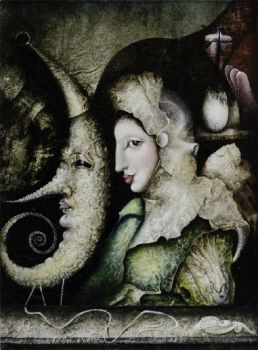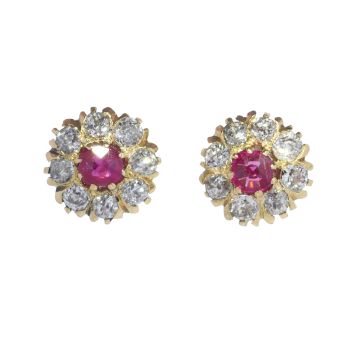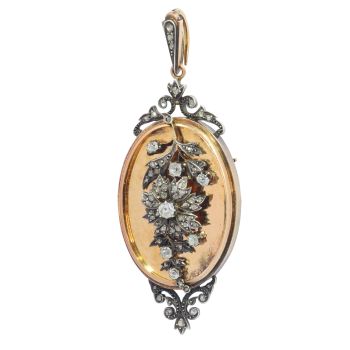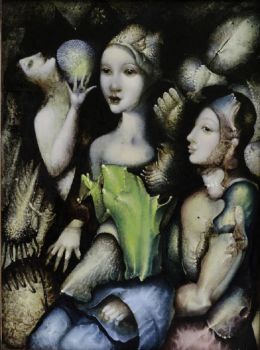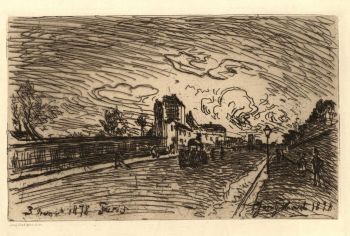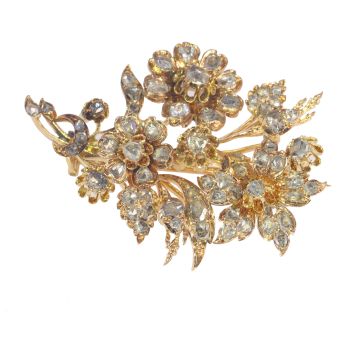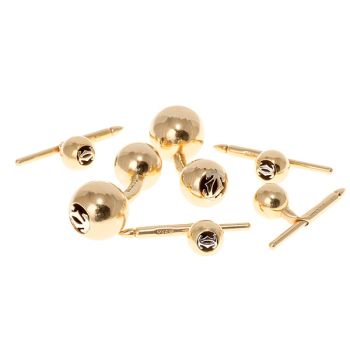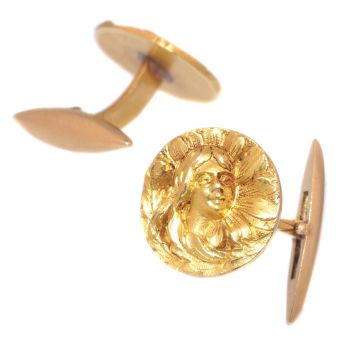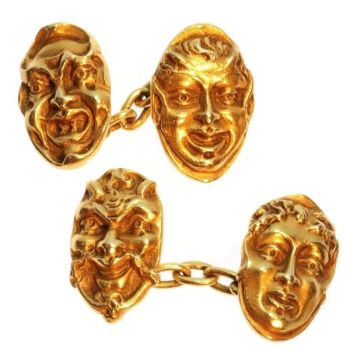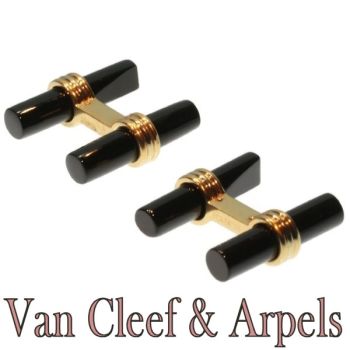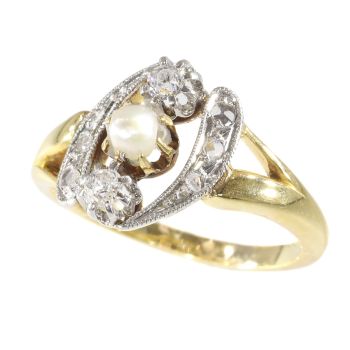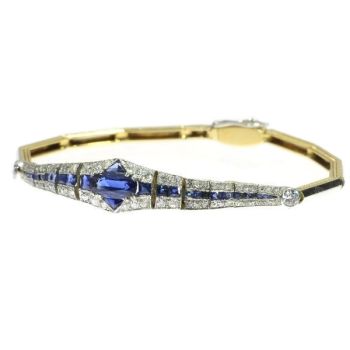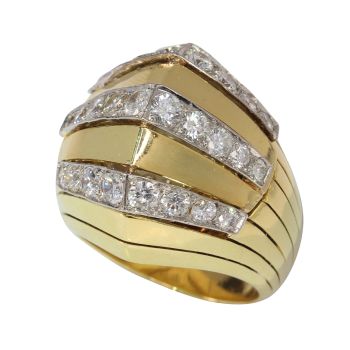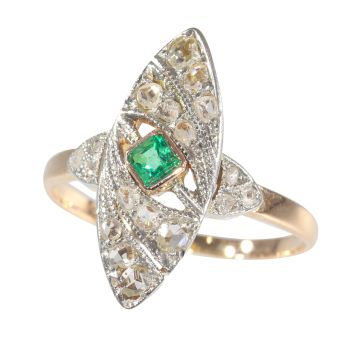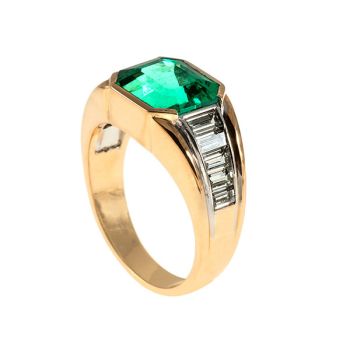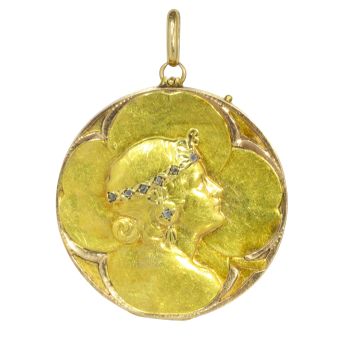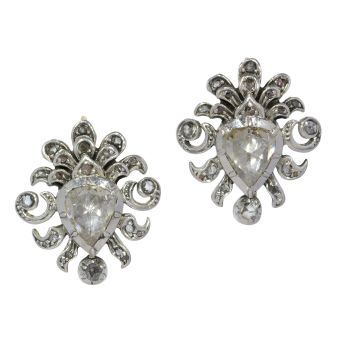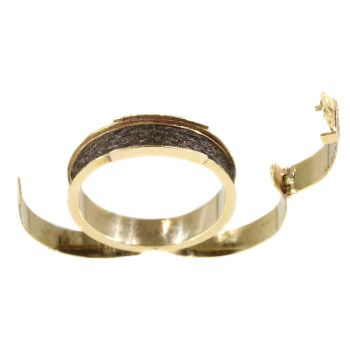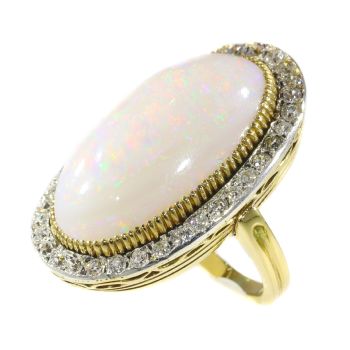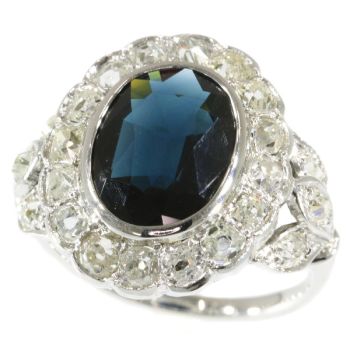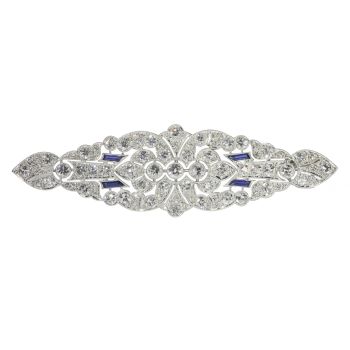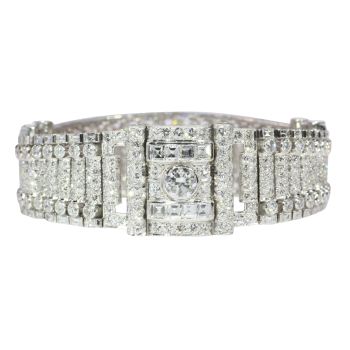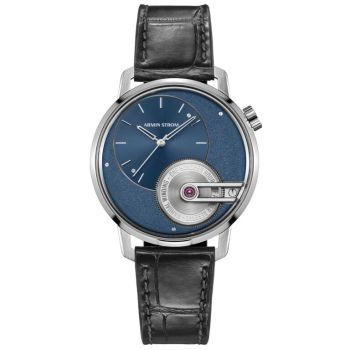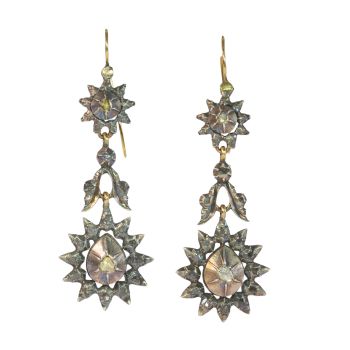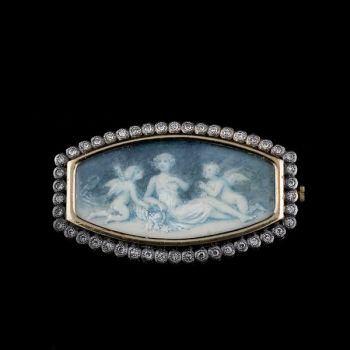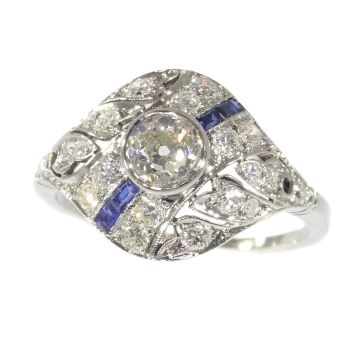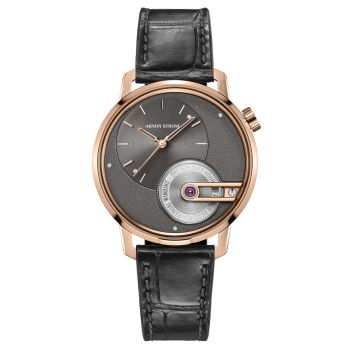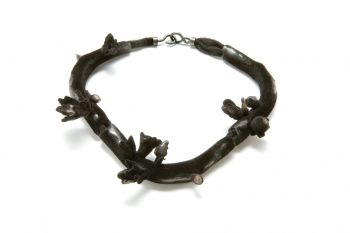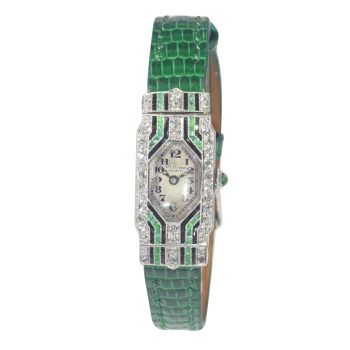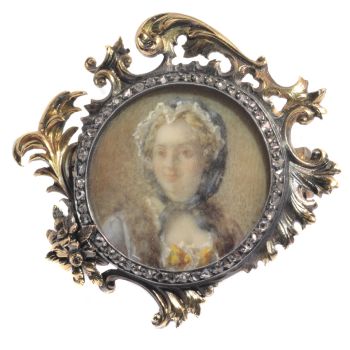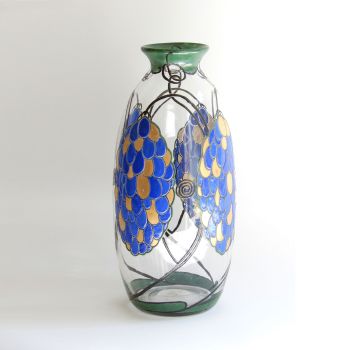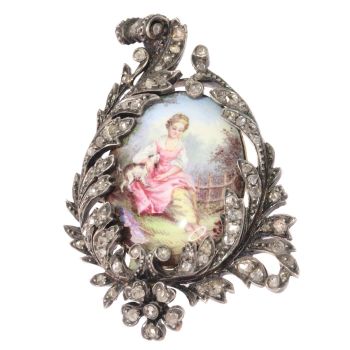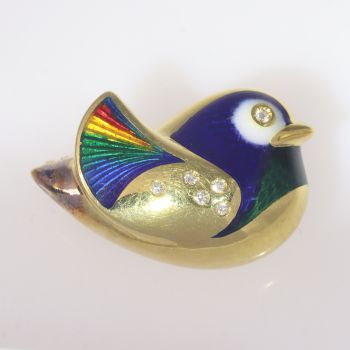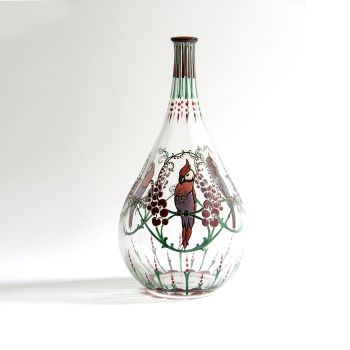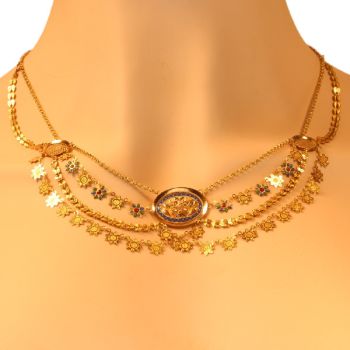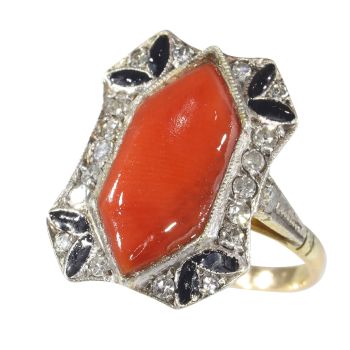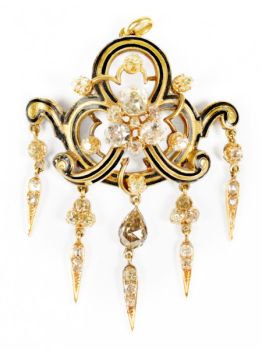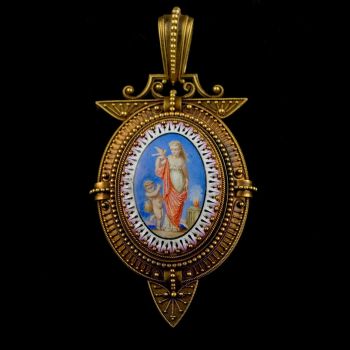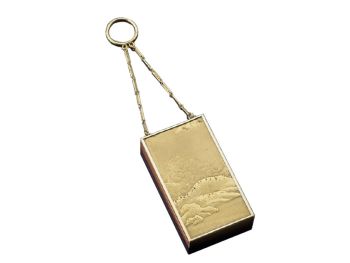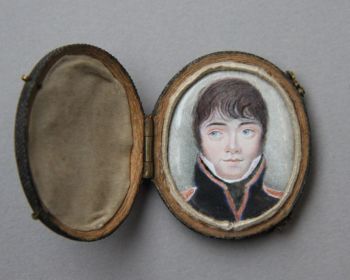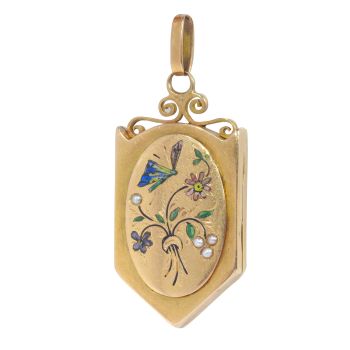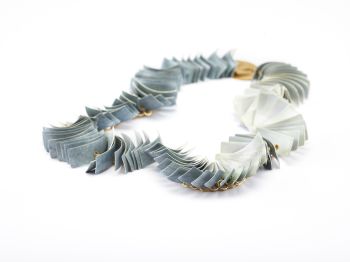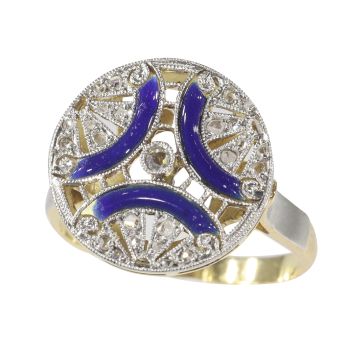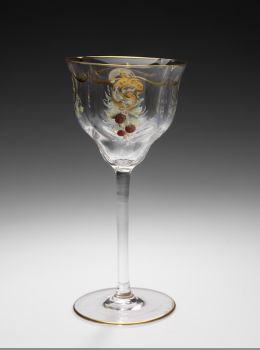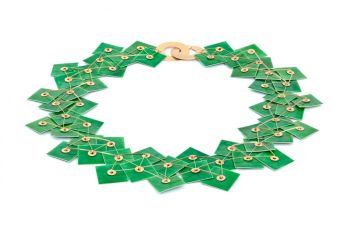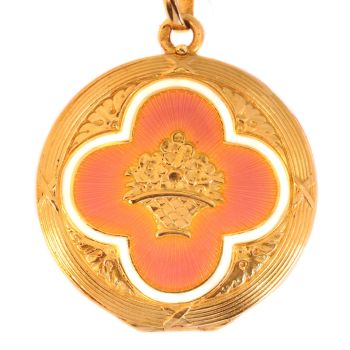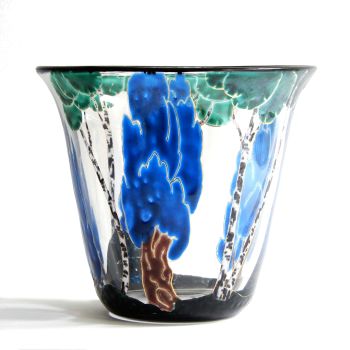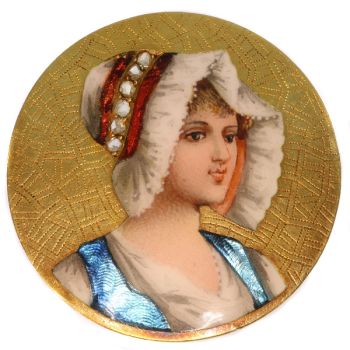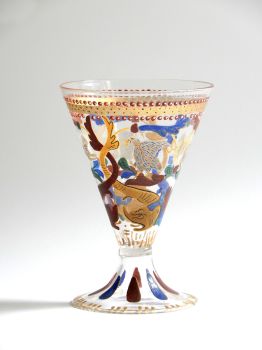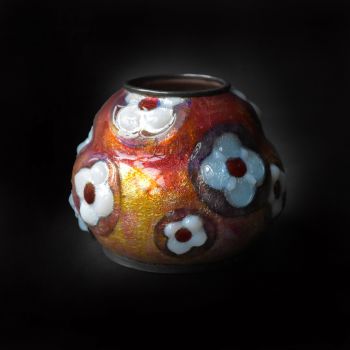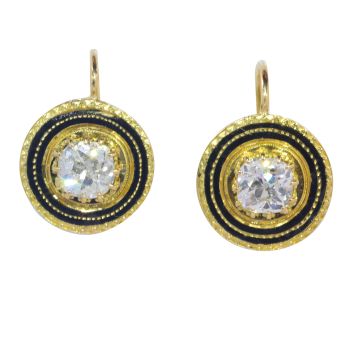Vintage antique 18K gold enameled cufflinks 1880
Unknown artist
Enamel
Currently unavailable via Gallerease
- About the artwork
Antique jewelry object group
cufflinks
Condition
very good condition
more info on our condition scale
Country of origin
unknown
Style
Victorian - Victorian decorative arts refers to the style of decorative arts during the Victorian era. The Victorian era is known for its eclectic revival and interpretation of historic styles and the introduction of cross-cultural influences from the middle east and Asia in furniture, fittings, and Interior decoration. Victorian design is widely viewed as having indulged in a regrettable excess of ornament. The Arts and Crafts movement, the aesthetic movement, Anglo-Japanese style, and Art Nouveau style have their beginnings in the late Victorian era.
See also: Victorian
more info on styles
Style specifics
The Grand Victorian Period - Experts divide the reign of Queen Victoria, also called The Victorian era (1837 - 1901) into three periods of about twenty years each; The Romantic Victorian Period (1837 - 1860), The Grand Victorian Period (1860 - 1880), and the Late or Aesthetic Victorian Period (1880 - 1901).
We consider this to be of the Grand Victorian Period.
This second Victorian period is famous for its ostentatious pieces set with pearls and diamonds (from South Africa). From ca. 1850 wealthy English had reported about jewelry from India and Japan, which heavily inspired the jewelers of this period. This period also corresponds with the death of Queen Victoria's husband King Albert making mourning jewelry (set with heavy dark stones) the type of jewelry specific for this period.
Period
ca. 1880
Events & facts of this era, poetry of this era, fashion of this era.
Material
18K yellow gold (touchstone tested)
more info on precious metals
Technique
Enamelling is an old and widely-adopted technology. The ancient Egyptians applied enamels to pottery and stone objects. The ancient Greeks, Celts, Russians, and Chinese also used enameling processes on metal objects. Enamel is the colorful result of fusing powdered glass to a substrate by firing, usually between 750 and 850 degrees Celsius. The powder melts and flows and hardens to a smooth, durable vitreous coating on metal, glass or ceramic. According to some sources, the word enamel comes from the High German word smelzan (to smelt) via the Old French esmail. Used as a noun, "an enamel" is a usually small decorative object, coated with enamel coating, such as a champlevé or a cloisonné (different techniques).
Hallmarks
No trace.
more info on hallmarks
Dimensions
diameter 1,38 cm (0,54 inch)
see picture with a ruler in millimeters and inches
Weight
8,50 gram (5,47 dwt)
Adin Reference Nº
23111-0118
Copyright photography
Adin, fine antique jewellery
Additional information
our latest acquisitions
jewelry glossary
wall of fame
visit us in Antwerp
subscribe to our mailinglist
- About the artist
It might happen that an artist or maker is unknown.
Some works are not to be determined by whom it is made or it is made by (a group of) craftsmen. Examples are statues from the Ancient Time, furniture, mirroirs, or signatures that are not clear or readible but as well some works are not signed at all.
As well you can find the following description:
•“Attributed to ….” In their opinion probably a work by the artist, at least in part
•“Studio of ….” or “Workshop of” In their opinion a work executed in the studio or workshop of the artist, possibly under his supervision
•“Circle of ….” In their opinion a work of the period of the artist showing his influence, closely associated with the artist but not necessarily his pupil
•“Style of ….” or “Follower of ….” In their opinion a work executed in the artist’s style but not necessarily by a pupil; may be contemporary or nearly contemporary
•“Manner of ….” In their opinion a work in the style of the artist but of a later date
•“After ….” In their opinion a copy (of any date) of a work of the artist
•“Signed…”, “Dated….” or “Inscribed” In their opinion the work has been signed/dated/inscribed by the artist. The addition of a question mark indicates an element of doubt
•"With signature ….”, “With date ….”, “With inscription….” or “Bears signature/date/inscription” in their opinion the signature/ date/ inscription has been added by someone other than the artist
Artwork details
Related artworks
Unknown artist
The Stamford Raffles Secretaires.1800 - 1813
Price on requestZebregs & Röell - Fine Art - Antiques
Unknown artist
A JURUNA TRIBE FEATHER HEADDRESS1900 - 1950
Price on requestZebregs & Röell - Fine Art - Antiques
1 - 4 / 12- 1 - 4 / 24
- 1 - 4 / 24
- 1 - 4 / 24

